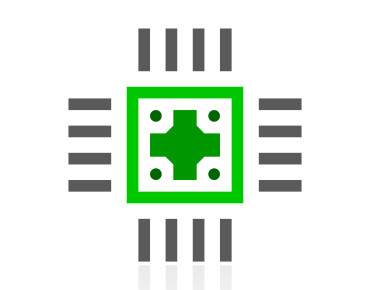Intel, Facebook Accelerate Datacenters With FPGAs

Intel Corp.'s plan to combine its next Xeon processor with a batch of field programmable gate arrays (FPGAs) along with ongoing collaboration with Facebook aims to accelerate a growing array of datacenter workloads, the partners said.
Intel (NASDAQ: INTC) announced plans during the recent Open Compute Project (OCP) summit to deliver libraries based on the combination of its next-generation Xeon processors and Arria 10 GX FPGAs. The FPGA technology comes via Intel's acquisition last year of programmable logic vendor Altera Corp.
Intel said the CPU and FPGAs would be combined on a multichip package, then libraries could be downloaded to the FPGA's for programming their datacenter functionality. The chipmaker also said it would work with OCP members on designs that integrate the Xeon-FPGA platform.
"Because cloud customers at scale often have workloads that have an affinity for acceleration, we are advancing innovation in the arena of field-programmable gate array technology," Jason Waxman, general manager of Intel's Cloud Platforms Group, noted in a blog post. "FPGAs provide flexibility in the acceleration of an increasing variety of datacenter workloads" and Intel is responding to growing demand for processors that leverage FPGA accelerators, the Intel executive added.
The hybrid Xeon-FPGA chip would slide into the same two-socket servers that connect general purpose Xeon E5 chips. The Xeon-FPGA chip has been in development for several years, with Intel working closely with Altera. Intel CEO Brian Krzanich noted last June in announcing the Altera acquisition that the combination would "enable new classes of products" based on its Xeon processors and Altera's FPGAs. Along with cloud datacenters and the Internet of Things, Krzanich stressed that the combined technologies would also be used to unclog networking bottlenecks.
Along with the integration of FPGAs with Xeon, Intel and Facebook also collaborated on development of a 16-core Xeon D processor. Intel unveiled the Xeon D family earlier this month. The chip is based on Intel's 14-nanometer process technology and integrates Xeon compute cores, networking and I/O in a single processor. The system-on-chip also is based on an OCP framework and was initially tuned to Facebook's datacenter workload requirements.
Facebook's datacenter architecture consists of clusters of more than 10,000 servers. "We wanted to build an infrastructure that consisted of a number of simple, modular building blocks, which would allow us to incorporate other compute logic (FPGAs or GPUs) in the future," the company noted in a recent blog post. The result is a platform called Mono Lake that "is the server embodiment of Xeon-D and the building block for our SOC-based server designs," Facebook said.
Facebook said it collaborated with Intel on the design of the new processor while "in parallel redesign[ing] our server infrastructure to create a system that would meet our needs and be widely adoptable by the rest of the industry."
Separately, Intel and Facebook (NASDAQ: FB) said they are collaborating to design NVM Express storage designed to an OCP spec. The storage platform codenamed "Lightning" targets emerging cloud workloads such as data analytics and machine learning, the partners said.
Related
George Leopold has written about science and technology for more than 30 years, focusing on electronics and aerospace technology. He previously served as executive editor of Electronic Engineering Times. Leopold is the author of "Calculated Risk: The Supersonic Life and Times of Gus Grissom" (Purdue University Press, 2016).










